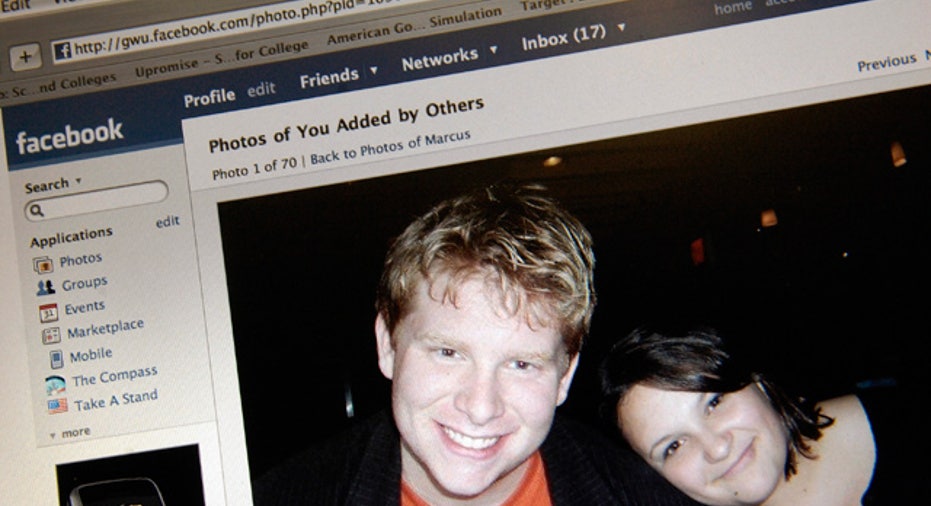How You Can Help Netflix Integrate With Facebook in the U.S.

What's stopping Netflix from integrating with Facebook, and providing better content recommendations based on your interests and friends? An antiquated law dating back to 1988 called the Video Privacy Protection Act (VPPA), which forbids the disclosure of one's video rental information. It's the reason Netflix plans to launch Facebook integration in Canada and Latin America, but not in the U.S. The company could face up to $2,500 in penalties for each violation of the law, as Blockbuster did in 2008 when it was slammed with a class-action lawsuit for participation in Facebook's Beacon program. (Netflix faced a similar lawsuit in 2009.)
But there's an easy solution to the issue--it just needs to pass that tight-knit, non-dysfunctional governing body we call the United States Congress (currently busy with a little issue you may have heard about)--and it can with your help. On July 8, representative Bob Goodlatte introduced H.R. 2471, a (70-word) bipartisan amendment to the VPPA to clarify that a content provider may disclose a consumer's video rental information if the consumer gives consent via the Internet (which would solve the problem for companies like Netflix and Blockbuster). A spokesperson for the congressman tells Fast Company the amendment has been sent to the House Judiciary Committee, where it awaits a vote that could send it back to the House floor.
Here's how you can contribute. Launched last year with support from Gov 2.0 evangelist Tim O'Reilly, Pop Vox is a Washington D.C.-based startup that harnesses the power of social media and crowdsourcing to influence members of Congress, by giving constituents a tool to support or oppose bills stuck in congressional gridlock. Pop Vox enables the public to offer its opinion on a piece of legislation, and have that opinion heard.
"There are about 400 million messages that came into Congress last year--increasing exponentially because technology is making it easier to produce those messages--but there hasn't been any corresponding technology to make them easier to process," says Pop Vox cofounder and CEO Marci Harris. "That's really where Pop Vox [comes in]. All the messages and votes that people leave on Pop Vox go through all the traditional write-your-member-of-Congress systems."
Indeed, if you leave a comment on a bill, for example, Pop Vox will deliver it by whatever means necessary to make sure it reaches the appropriate Congress member, whether by electronic form or hand delivery. "Basically we'll do backflips to get the messages into hands of members of Congress," Harris says. The service came in handy for a bill that would ensure pay for military members in the event of a government shutdown, and more recently for the Fair Tax Act of 2011. Pop Vox allows users to sign in via Google, Facebook, Twitter, and LinkedIn accounts, and has made sharing via social media an integral part of its service.
Call it a Gov 2.0 experiment in crowdsourcing. Pop Vox features H.R. 2471, but few have offered support for the amendment, despite its simplicity and the widespread response related to the lack of Netflix-Facebook integration from media outlets such as Forbes, the Los Angeles Times, and AllThingsD. (The short background on how the VPPA came about, by the way, is interesting and certainly worth a read.)
There's one proponent who's onboard, however: Netflix CEO Reed Hastings. "The VPPA discourages us from launching our Facebook integration domestically," Hastings wrote in his letter to shareholders. "Under the VPPA, it is ambiguous when and how a user can give permission for his or her video viewing data to be shared. A bipartisan group of lawmakers has introduced a simple clarification, H.R. 2471, which says when and how a user can give such permission. Were hoping H.R. 2471 passes, enabling us to offer our Facebook integration to our U.S. subscribers who desire it."
Given how vocal Netflix subscribers have been on social media about negative aspects of the service, here's an opportunity for those subscribers to harness the same passion for something positive. If you'd like to contribute, you can head to Pop Vox's page for H.R. 2471, spread the word via Twitter hashtag (#Vote4Netflix), and share your feelings on other social media.
"I know there's a lot of cynicism out there about the power of actual constituents influencing the decisions of members of Congress," Harris says. "But Pop Vox is a tool for getting the message to them the old-fashioned way, while using the power of social media and crowdsourcing."
This content was originally published on FastCompany.com
 More news from Fast Company: - Scientists Discover The Oldest, Largest Body Of Water In Existence--In Space - Inside The Libyan Rebels' Mobile-Phone Network - Why Neuromusic Will Never Be As Catchy As Katy Perry
More news from Fast Company: - Scientists Discover The Oldest, Largest Body Of Water In Existence--In Space - Inside The Libyan Rebels' Mobile-Phone Network - Why Neuromusic Will Never Be As Catchy As Katy Perry



















